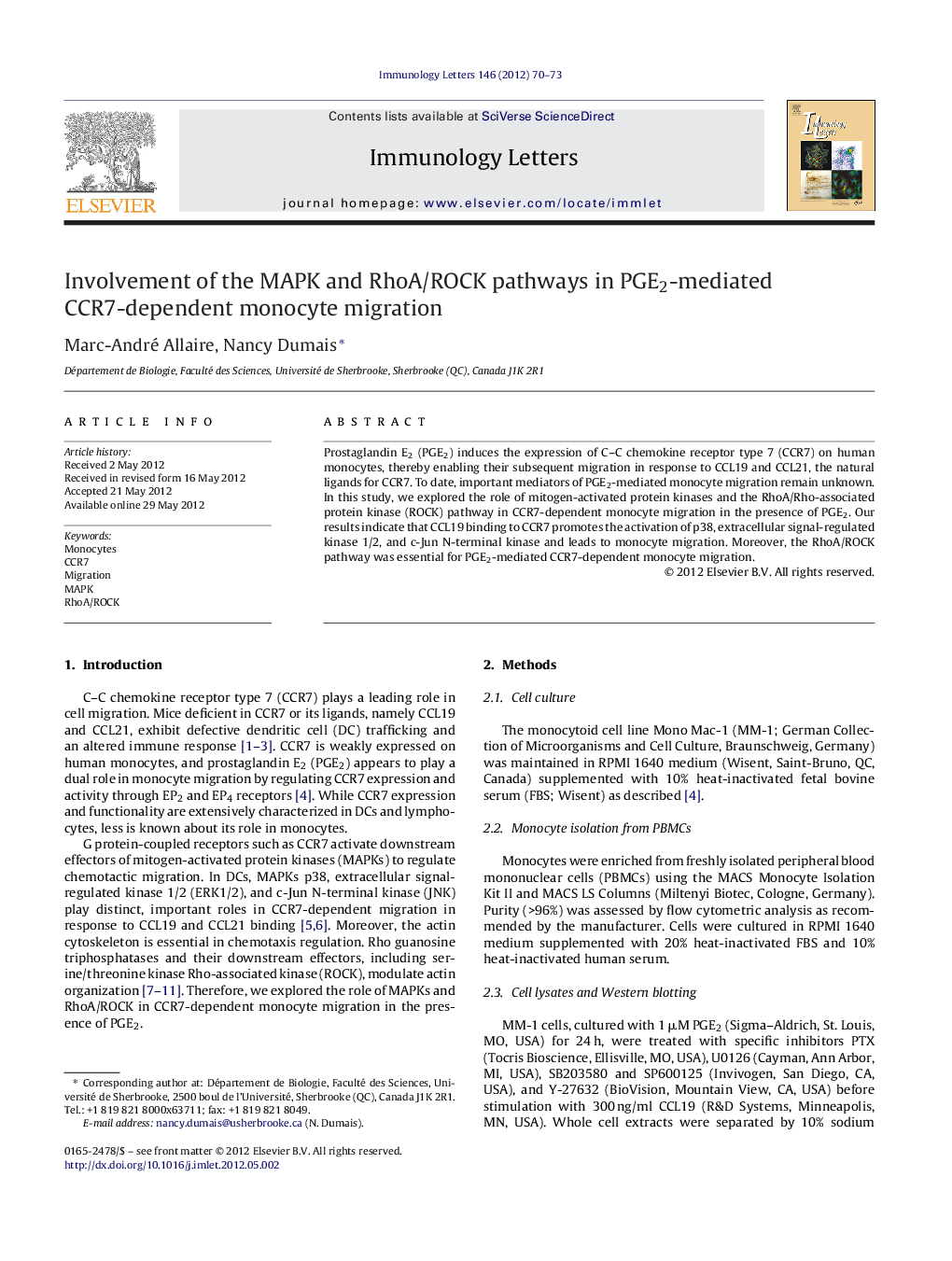| Article ID | Journal | Published Year | Pages | File Type |
|---|---|---|---|---|
| 3355684 | Immunology Letters | 2012 | 4 Pages |
Prostaglandin E2 (PGE2) induces the expression of C–C chemokine receptor type 7 (CCR7) on human monocytes, thereby enabling their subsequent migration in response to CCL19 and CCL21, the natural ligands for CCR7. To date, important mediators of PGE2-mediated monocyte migration remain unknown. In this study, we explored the role of mitogen-activated protein kinases and the RhoA/Rho-associated protein kinase (ROCK) pathway in CCR7-dependent monocyte migration in the presence of PGE2. Our results indicate that CCL19 binding to CCR7 promotes the activation of p38, extracellular signal-regulated kinase 1/2, and c-Jun N-terminal kinase and leads to monocyte migration. Moreover, the RhoA/ROCK pathway was essential for PGE2-mediated CCR7-dependent monocyte migration.
► In monocytes, CCL19 causes potent phosphorylation of p38, ERK1/2, and JNK. ► MAPK phosphorylation affects monocyte migration. ► PGE2 is an important activator of RhoA in monocytes. ► ROCK activity is essential for PGE2-mediated migration in response to CCL19.
